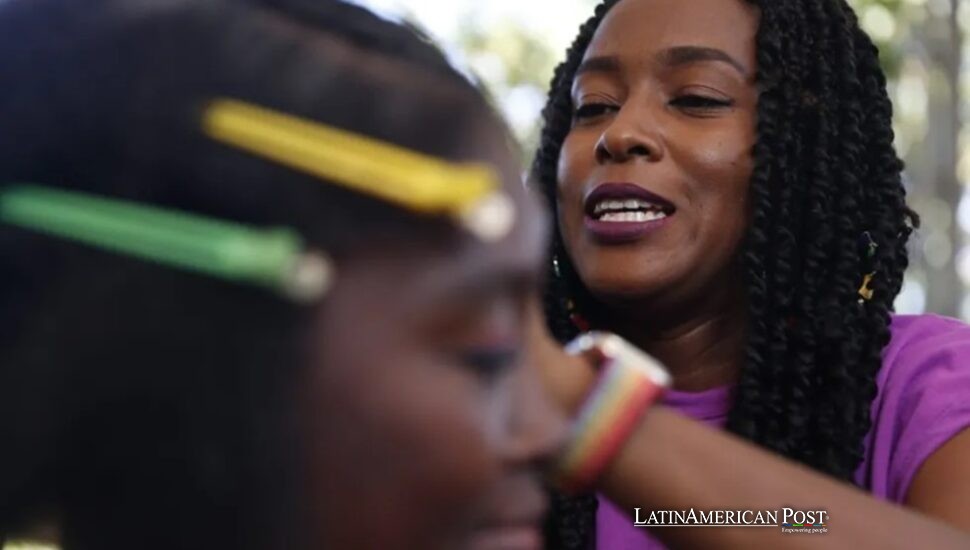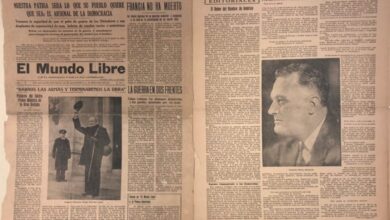
Travelers seeking a deeper connection to Latin America’s Afro-descendant heritage will find a new pathway through Kim Haas’s pioneering tours. With roots in a childhood passion for Spanish and cultural discovery, Haas introduces Afro-inspired group journeys throughout the entire region.
A Lifelong Passion Takes Flight
Kim Haas developed a passion for travel at age six during her initial trip outside the United States. Her grandmother took her to Acapulco, Mexico, where a coincidental meeting influenced her path. A local proposed to show her how to count to twenty in Spanish, and she took the chance. Haas remembered during an interview noted by Travel + Leisure that she became hooked on Spanish, travel, language, and culture.
After that, basic Spanish instruction created a lifetime focus on looking into Latin American cultures. The language charmed Haas, as did the stories, traditions, and diverse pasts that appear throughout that land. The same curiosity that made her a wide-eyed child learning numbers in Spanish would eventually lead her to create television shows and immersive tours that celebrate African heritage in Latin American communities.
Over time, Haas became acutely aware of how rarely Afro-descendant narratives are highlighted in mainstream media. She found that many stories regarding Latin America often reduced or ignored Black communities and their wide contributions. Because she wished to tackle this problem, Haas started her own PBS television series, Afro-Latino Travels With Kim Haas. It presented Afro-Latino cultures’ strength, imagination, and deep past. She grew this idea by providing guided travel trips that let people connect with these stories themselves.
Showcasing Afro-Latino Heritage
Haas’s earliest group excursion took place in July 2022 and was inspired by a viewer of her TV series. After watching the Afro-Latino Travels With Kim Haas episodes filmed in Costa Rica, this individual reached out, eager to see whether Haas would organize an Afro-Costa Rican tour. Recognizing an ideal chance to bring her show’s mission to life, Haas designed a customized itinerary that included opportunities to meet Afro-Costa Ricans featured in her series—writer Quince Duncan and cacao farmer Daniel South.
Those attending the inaugural trip visited cultural sites and participated in exhilarating activities like ziplining and white-water rafting. Students took cooking courses. These courses presented Costa Rica’s cuisine, which African cooking impacted. Participants established relationships as they tasted spices and consumed delicious meals specific to the nation’s Caribbean shoreline. By blending bright local culture with daring outdoor activities, Haas ensured that participants developed real bonds with Afro-descendant communities and the broader landscape.
Buoyed by that initial success, Haas laid the groundwork for more tours. She specifically sought places where Afro-Latino cultures are deeply rooted yet underrepresented in the tourism industry. She believed every traveler—regardless of heritage—can learn from the stories, resilience, and influence of Afro-descendant peoples. Haas stated in her interview that she wanted people to have direct experiences with Afro-descendant culture. She hoped they connected with communities, heard individual stories, and saw evidence of their resilience and creativity. This went further than just watching a TV show, according to her.
Because of the focus on genuine connections, Haas’s tours are distinct. She is careful to collaborate closely with local guides, community leaders, historians, and cultural experts who can speak knowledgeably about the lived experiences of Afro-Latino populations. Haas makes these voices prominent. His trips change to places that foster cross-cultural understanding. They are intense celebrations of community achievements. The wider world seldom learns about this.
Looking Ahead to 2025 and Beyond
Haas plans trips that reveal lesser-known aspects of Latin America’s past. She guides an examination of Colombia in July 2025. It will cover the complex nature of Afro-Colombian existence across various areas. Travelers go to Cali, which many call the salsa capital. They see the excitement of dance places and find the city’s older parts, such as the well-known Salsa Museum.
The group then visits San Cipriano, a green Afro-Colombian town encircled by pretty views within the thick Colombian rainforest. The itinerary culminates in Cartagena, a colorful coastal city with a UNESCO-recognized walled center—once a major port during the transatlantic slave trade. Here, travelers will see San Basilio de Palenque, recognized as the first free Black town in the Americas. Haas wants participants to understand these locales’ long-standing efforts toward liberation and cultural preservation.
Haas also spotlights essential voices that break barriers by highlighting extraordinary women like Afro-Colombian journalist Edna Valencia. As Haas explained in Travel + Leisure, Valencia was “the first Afro-Colombian journalist to wear an afro hairstyle on Colombian television” and later consulted for Disney’s Encanto to ensure accurate representation of Afro-Colombian characters. Such trailblazers, Haas believes, epitomize the best of Afro-Latino heritage—demonstrating resourcefulness, leadership, and dedication to cultural integrity.
Haas plans Colombia tours. They start in the summer of 2025, from July 16 to 24. However, her work with Afro-inspired travel does not end with those tours. She wants to start trips to Brazil, Guatemala, and Uruguay the following year. That will reinforce her goal to promote Black history and heritage in Latin America. With this expansion, the company will offer music shows, dance classes, and cooking lessons. These activities will highlight Afro-descendant practices.
Haas stresses that anyone open to new ideas and eager to learn can join the tours. She thinks strong bonds arise between visitors and locals. Those connections can question stereotypes, reveal ignored histories, and build greater understanding between cultures. For instance, the tours allow participants to dance salsa in Cali or enjoy chocolate in Costa Rica. These active events trigger better awareness of mutual human nature.
As she thinks about the future, Haas hopes more common discussions about Latin America will praise Afro-descendant cultures. She wants them to acknowledge the significant work done by these groups. As she continues developing new tours, her goal remains to broaden her understanding of the global African diaspora and empower local voices along the way.
Also Read: Uruguayan Officer’s Macabre Past Exposed in New Crimes Trial
Travelers who want to go with Haas on their next trip can discover registration details and itineraries, in addition to useful information on her official website, travelswithkimhaas.com. This approach shows her initial wish to learn languages and inspires every traveler to expand her perspectives. Through active trips plus conversations about culture, Kim Haas’s business leads efforts that honor Afro-Latino backgrounds. It boosts opinions, guards inheritance, and develops unity between cultures during each trip.





